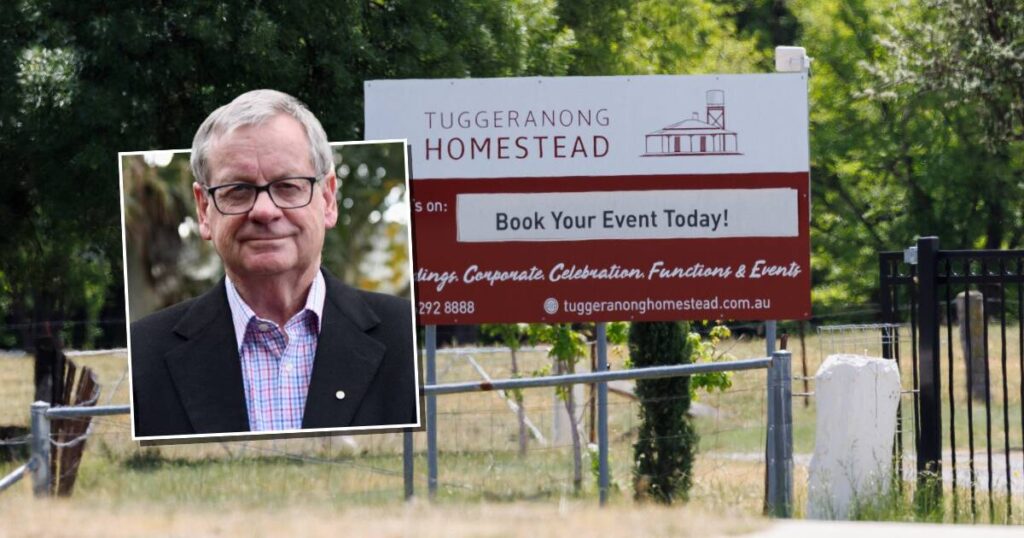
A planned lecture by renowned war correspondent Chris Masters has been cancelled, following concerns from venue owners that his speech might be too controversial. The decision has sparked outrage among historians and supporters of Masters, who was set to present at the Tuggeranong Homestead in Canberra next year.
Chris Masters, a multi-Walkley-Award-winning journalist, was invited to deliver the sixth CEW Bean Memorial Lecture at the historic Tuggeranong Homestead. The venue, a 200-year-old heritage-listed site, is significant for its connection to Charles Bean, Australia’s official war historian, who wrote the first volumes of the World War I history there.
The Venue’s Dilemma
The controversy began when Jenny Horsfield, chair of the community group Minders of Tuggeranong Homestead (MOTH), informed the homestead’s lessees about the upcoming lecture. According to Horsfield, the lessees rejected the idea, citing concerns about potential controversy.
“What is dispiriting about it is the cowardice,” Masters commented. “Why should cowardice win? Why should the bullies win? It saddens me.”
Masters had planned to discuss his book, Flawed Hero: Truth, Lies and War Crimes, which critiques Australia’s most decorated soldier, Ben Roberts-Smith. The book was recently deemed ineligible for a literary prize by the Australian War Memorial, adding to the tension surrounding the lecture.
Reactions from the Historical Community
Historians have expressed disappointment over the cancellation. Peter Rees, a historian and biographer of Charles Bean, described the decision as “incomprehensible” and a risk to the legacy of both the homestead and Bean.
“To turn down someone of Chris’s stature is to devalue the role of the war correspondent, which is so critical to our understanding of war,” Rees stated.
Meanwhile, Peter Stanley, another historian and past speaker in the lecture series, criticized MOTH’s decision as “pathetic,” arguing that it undermines the legacy of journalists telling the truth about history.
Implications and Future Prospects
The cancellation highlights the ongoing tension between historical truth-telling and commercial interests. The homestead’s caretakers, Gerry Nussio and Ann Filmer, stated they had no involvement in the invitation process, emphasizing their role as lessees focused on business considerations.
Horsfield expressed regret over the situation, noting the cooperative relationship between MOTH and the lessees. She hopes for a resolution that maintains good relations with the Australian War Memorial, despite its apparent lack of interest in the homestead’s legacy.
As the debate continues, the incident raises questions about the balance between preserving historical integrity and managing commercial venues. The decision to cancel Masters’ lecture may have broader implications for how contentious historical topics are addressed in public forums.
Moving forward, the historical community and supporters of Masters will be watching closely to see if the lecture series can continue to honor the legacy of Charles Bean and promote open dialogue about Australia’s wartime history.






